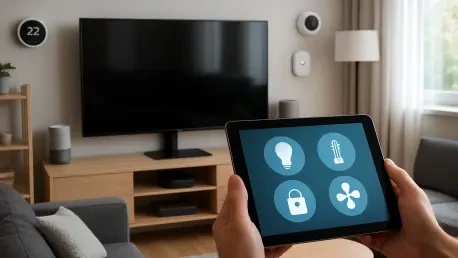I’m thrilled to sit down with Oscar Vail, a renowned technology expert whose pioneering work in quantum computing, robotics, and open-source projects has positioned him at the cutting edge of the industry. With a deep understanding of how smart technology shapes our lives, Oscar offers unique insights into both its transformative potential and the challenges it poses. In this conversation, we explore the seamless integration of smart devices into our daily routines, the benefits they bring, the hidden costs we often overlook, and how we can maintain a healthy balance in an increasingly connected world.
How has smart technology woven itself into the fabric of our everyday lives?
Smart tech has become almost invisible in its presence, yet it’s everywhere. From the moment we wake up to a phone alarm, check notifications, or rely on a smartwatch to track our morning run, these devices guide us through the day. At work, calendar apps nudge us from meeting to meeting, while at home, smart speakers or thermostats adjust our environment without a second thought. It’s this gradual, helpful integration that makes it so pervasive—we adopt one small tool at a time until our entire day is shaped by these systems.
What do you see as the most significant advantages of embracing smart technology?
The benefits are hard to ignore. For one, smart tech offloads mental clutter—think calendar reminders or shopping lists managed by an app, freeing up brain space for more important things. Wearables also give us a window into our health, tracking sleep or heart rate in ways we couldn’t on our own, while smart home devices can even catch safety issues like leaks. Then there’s the speed of information—voice commands or quick searches cut down problem-solving time dramatically. It’s about making life smoother and giving us a sense of control over the chaos.
What are some of the less obvious drawbacks of relying so heavily on these devices?
The downsides often sneak up on us. Constant notifications, for instance, shatter our focus—studies show it can take over a minute to recover from each interruption, and with dozens a day, that’s a real loss of productivity and a spike in stress. Privacy is another big concern; every connected device is collecting data, often without us fully understanding where it goes. And mentally, the endless switching between apps and updates drains us. It’s a subtle but real tax on our energy and decision-making.
In what ways do you think smart technology influences how we think and act over time?
It’s fascinating—and a bit unsettling—how much it reshapes us. Attention spans are shrinking; we’re down to less than a minute on a single task before switching, largely due to rapid-fire content like short videos. People check their phones dozens of times an hour, often without realizing it, because these devices train us to crave quick hits of information. Over time, this repeated behavior turns into reflex, even dependence, blurring the line between choosing to engage and just reacting to the tech’s design.
What practical steps can people take to keep control over their relationship with smart devices?
It starts with setting boundaries. Simple things like turning off non-essential notifications or scheduling specific times to check your phone can make a huge difference in reclaiming focus. Taking breaks—whether it’s a quick walk or just stepping away from screens—helps reset your mind. And we need to be mindful about data; think twice before sharing personal info with apps or devices. These small choices add up, helping us use tech as a tool rather than letting it steer us.
How can we ensure we’re using smart technology intentionally, rather than letting it dominate our lives?
Intentional use means being clear about why you’re picking up a device—asking yourself, ‘What’s my purpose here?’ instead of mindlessly scrolling. Balancing it with offline activities, like reading a physical book or having real conversations, keeps us grounded in the present. These analog moments remind us there’s value beyond screens and help maintain a sense of agency. It’s about making tech serve our needs, not the other way around.
What is your forecast for the future of smart technology and its role in our lives?
I think we’re at a crossroads. On one hand, smart tech will keep getting more powerful—think seamless integration with AI that anticipates our needs before we even ask. But there’s also a growing push for designs that respect our limits, prioritizing focus and privacy over endless engagement. I believe we’ll see a split: some tech will continue to demand our attention, while others will aim to support us quietly and step back. The real question is whether we, as users, will demand that balance and shape the direction through our choices.









